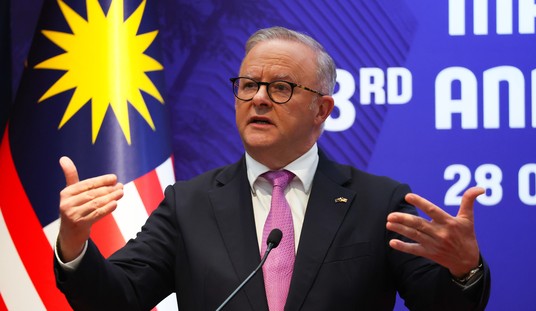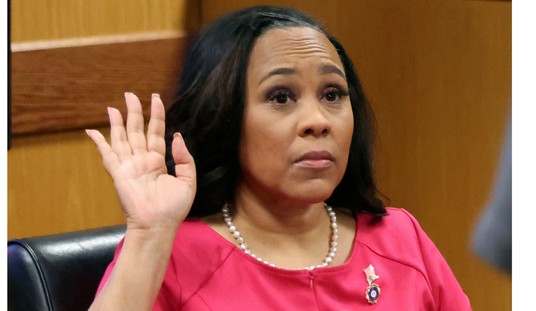Skip to 3:25 for the key bit. There are two early sticking points in the Senate proposal: (1) illegals get probationary legal status on day one and (2) a path to citizenship will be created for them sometime later if and only if there are measurable improvements in border security first. That’s what Rubio insists upon, at least; Obama’s preference, for obvious reasons, is that Congress should be allowed to create a citizenship mechanism before anything happens with security. Here’s what Rubio said about the legalization process yesterday at Red State:
First, those who have violated our immigration laws must come forward and undergo a background check. If they have committed a serious crime, they will be deported. If they have not, they will have two choices. They can avail themselves of the current law which requires them to return to their native country, wait ten years and then apply for a green card. Or if they decide to remain in the United States, they will do so under the equivalent of a non-immigrant work permit by paying a substantial fine and back taxes. If they choose the non-immigrant work visa, they will not qualify for any federal benefits, including ObamaCare.
Those who choose the non-immigrant work permit will not be allowed to apply for a green card for a substantial period of time. And they will not be allowed to apply until the enforcement mechanisms outlined above are in place. Thereafter, once these conditions are met, and if they have not violated any laws while holding the work permit, the only thing they will be allowed to do is apply for a green card using the same process everyone else uses. That is, they apply, they wait in line behind everyone who has applied before them and when their turn comes up, they have to qualify for one of the existing green card programs.
If I understand this correctly, illegals can get the work visa immediately, as a matter of right if they pay the fine and taxes. There’s no line for that, as it’s part of their probationary legal status. The only line they’ll have to get on, once that mysterious “substantial period of time” has expired, is for the green card. (“Substantial period of time” presumably means more than 10 years. Otherwise what incentive is there to choose Rubio’s first option, leaving the country and waiting a decade for a chance at a GC?) In other words, there seems to be only one line under this plan: You have to wait for a green card but you get the work visa right away. Paul, by contrast, wants them to have to wait on two lines, first for the visa just like everyone else and then for the green card just like everyone else. That would, in theory, make the citizenship process much longer and would avoid creating a “special” path to citizenship for illegals who are already here.
The second key disagreement comes at 6:30 when Fischer gets Paul to agree that not even probationary legal status should be granted until the border has improved. Rubio’s been cagey about that, emphasizing repeatedly that there’ll be no green card process down the line if border security doesn’t improve while side-stepping the fact that illegals don’t have to wait for security upgrades to gain a basic right to be here immediately upon passage of the legislation. As Rich Lowry said yesterday, “If I were an advocate of amnesty, all I would want is that initial legalization on the assumption that everything else can be litigated — sometimes literally — later.” Democrats might give a little on the citizenship process in the expectation that it can be truncated substantially later via litigation but I don’t think they’ll yield on instant probationary legal status, which, as Lowry notes, is the whole ballgame. It’s the Republicans’ core concession to them. And since they won’t yield, I think Paul — and eventually Rubio — will end up walking away.








Join the conversation as a VIP Member